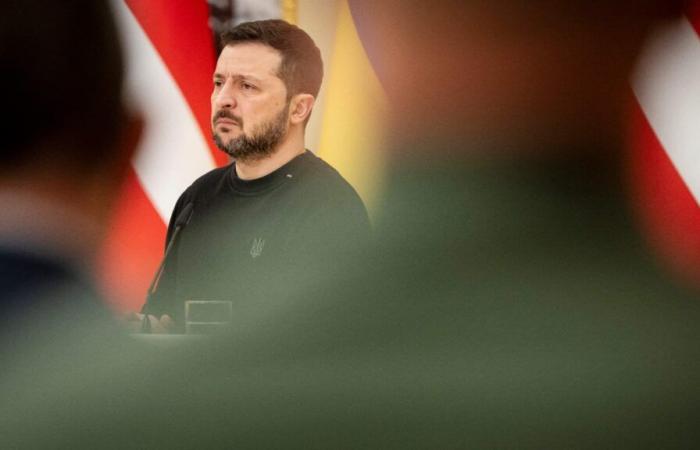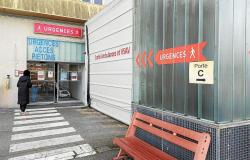The end of a contract between Naftogaz and Gazprom puts an end to the transit of Russian gas through Ukraine. A new situation which worries and even outrages certain Eastern European countries, including Slovakia which threatens to interrupt the electricity supply to Ukraine in retaliation.
Moldova has already started to turn off its lights, Slovakia is threatening Ukraine with reprisals: kyiv's announcement of the end of the transit of Russian gas on its territory is sowing trouble in Eastern Europe. No deliveries are planned for Wednesday January 1, according to data published Tuesday by the Ukrainian operator GTSOU, noting the expiration of a contract established in 2019 between the company Naftogaz and the Russian giant Gazprom.
In this context, the price of European gas has reached the symbolic mark of 50 euros per megawatt hour, a first in more than a year. If the continent's dependence has been significantly reduced since the start of the war in Ukraine, the states located in the East continue to obtain significant supplies from Moscow.
A windfall that President Volodymyr Zelensky wants to dry up by stopping transporting gas from Russia. This route represents almost a third of Russian gas sold to Europe, details Phuc-Vinh Nguyen, head of the Energy Center at the Jacques Delors Institute. The rest is transported by the TurkStream gas pipeline and its extension, Balkan Stream, under the Black Sea, to Bulgaria, Serbia and Hungary, or by cargoes of liquefied natural gas (LNG).
“Energy blackmail” in Moldova
It is in Moldova that the situation is most critical: this former Soviet republic declared a state of emergency after the failure of negotiations with Gazprom, which cited a financial dispute and refused to consider other routes to this stage. In the capital Chisinau, where most of the Christmas lights will be turned off, residents confide their “fear”.
“It's terrible, no one knows what will happen. I bought candles and a generator,” Cristina, a 21-year-old student who refused to give her last name, told AFP.
The Russian group has already stopped a large part of its deliveries after the start of the war in Ukraine and until now only supplied the pro-Russian separatist region of Transdnistria. But its thermal power station still provides 70% of the electricity consumed by the entire country, one of the poorest in Europe. “The Kremlin is once again resorting to energy blackmail in order to influence the 2025 legislative elections and weaken our European trajectory,” reacted President Maia Sandu, re-elected in November after a vote clouded by accusations of Russian interference .
To the inhabitants of Transdnistria, who will find themselves without heating in the middle of winter, she offered “humanitarian aid” but the local authorities refused, hoping for a rapid resolution of the conflict. According to Alexandru Flenchea, a former government official specializing in this region, “Transdnistria is nothing more than collateral damage” in the destabilization strategy implemented by Russia.
By using the “geopolitical weapon of gas”, Vladimir Putin “is carrying out undermining work, he is fueling the resentment of the population in order to influence support for Ukraine and sow the seeds of discord at the European level” , confirms Phuc-Vinh Nguyen. The Moldovan government has announced drastic measures to reduce electricity consumption, in particular by limiting lighting in public buildings and the use of elevators, and intends to buy the missing electricity from neighboring Romania.
Doze of savings: Gas prices, long live winter 2025 – 24/10
The EU “prepared”, Slovakia outraged
The European Union appears calm, while the approximately 14 billion m3 transiting annually via Ukraine represent only 5% of its total gas imports. “The flow must be stopped on January 1 and the EU is prepared,” the Commission told AFP on Tuesday. She invokes European infrastructure capable of transporting non-Russian gas “by other routes”. In a report published in mid-December, Brussels judged the impact to be “limited”.
After Austria's decision in December to terminate its long-term contract with Gazprom, only Slovakia is affected. Its leader Robert Fico is crying foul and went to Moscow to meet Vladimir Putin. “Accepting the Ukrainian president’s unilateral decision is totally irrational and wrong,” he argued in a letter to Brussels, denouncing “a major financial impact”.
In retaliation, the Slovak Prime Minister threatened to cut off the electricity supply that the war-torn country needs in the face of bombing of its energy infrastructure. Neighboring Hungary, which has also remained close to the Kremlin, receives most of its Russian gas imports via TurkStream and kyiv's decision will only marginally affect it.






